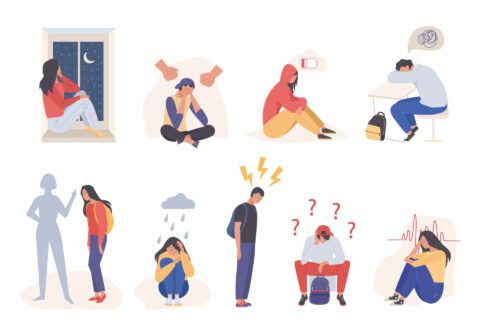Experiencing Grief During the Holiday Season
The holiday season is upon us again. This can be a particularly tough time to navigate if you are grieving. In fact, if you google “holidays and grief” the first result is for a depression/suicide hotline number. Obviously, there is a lot of heartache and distress if you are grieving during the holidays. So, what can you do to make it easier? Below I’ve gathered a few thoughts on ways you might deal with grief and the holidays.
Take a break.
You don’t have to put on, or participate in, all of the holiday traditions you usually do. You can skip some parties or events. It’s easy to feel overloaded when you are grieving, so don’t pressure yourself to do everything.
Location, location, location.
Maybe you want to spend the holidays in your usual location, or maybe you want to go somewhere entirely new. Maybe you want to visit the gravesite or maybe you don’t. Be cognizant of your location as you plan holiday events.
Honor your loved one.
Some ideas to honor your loved one might include: lighting a candle in their honor, “adopting” a child or family in memory of your loved one, making a memorial ornament or decoration, creating a photo table of your loved one, or donating some of your loved one’s possessions.
Get organized.
Grief makes your mind foggy and it’s easy to let things slip through the cracks. Make lists, create calendars, coordinate with others – whatever you need to do to make sure your priorities are taken care of.
Don’t “should” yourself (or let others “should” you).
It’s easy to think “I should [send out Christmas cards…attend that party…put up decorations…be happier, etc.],” but go easy on yourself and only do what you have the capacity to do. Don’t let yourself feel guilty.
Take care of yourself.
I know self-care has become a bit of a cliché these days, but it’s very important. Figure out what recharges you. A few ideas are: exercise, join a grief group, spend time in nature, make an appointment with a therapist, journal, meditate, or worship. Also, make sure you don’t overindulge in alcohol or other substances that will make your mental state worse.
Communicate.
You probably have family and friends who aren’t sure how you want to handle the holidays this year. It makes it easier if you communicate what you feel up to or don’t feel up to doing. And if you don’t know what you want yet, tell them that, too. Otherwise, you might end up with a lot of hurt feelings or miscommunication on both sides.
Seek gratitude.
Grief makes it easy to get bogged down in sadness and what we are missing. Take a moment each day to find something you are grateful for, and note it down somewhere.
Ask for help AND accept help.
Chances are you have people in your life who want to help you or have even offered. It can lift a weight off your shoulders to have some assistance with shopping, decorating, or cooking.
It’s okay to enjoy yourself and be happy.
We sometimes feel guilty for enjoying the holidays while missing someone we love; but finding happiness amidst grief is okay and normal. It doesn’t diminish how much we miss our loved one. If you find some joy and peace – enjoy it!
Amanda is a Clinical Mental Health Counselor, specializing in individual and family therapy for people of varying backgrounds. She works for Memorial Estates, running their Grief & Loss Counseling program.
She has extensive experience working with adolescents and families in the community. Amanda received her Master’s Degree in Educational Psychology from the University of Utah. There she focused on Multicultural and Client Centered Counseling.
Amanda started her career working for Salt Lake County Youth Services, serving families from all backgrounds and with a wide variety of issues. She further developed her passion for helping people recover and heal from trauma and loss.
In counseling, Amanda values the trust and safety of the therapeutic relationship. She creates a counseling environment full of compassion, safety, empathy, and understanding. She constantly strives to help to cultivate strong relationships and assist families to cope with the loss of a loved one. Through her open attitude, and the warm environment that she facilitates, families can begin to feel peace as they work through their bereavement.
Memorial Utah, with the help of Amanda Nelsen, is committed to helping you through the loss of your loved one. You may contact Amanda at (801) 718-1520 or amanda.nelsen@securitynational.com
The post Experiencing Grief During the Holiday Season appeared first on Memorial Mortuaries.













